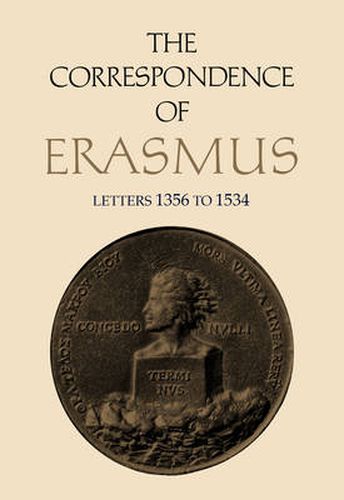Readings Newsletter
Become a Readings Member to make your shopping experience even easier.
Sign in or sign up for free!
You’re not far away from qualifying for FREE standard shipping within Australia
You’ve qualified for FREE standard shipping within Australia
The cart is loading…






The period from April 1523 to December 1524 finds Erasmus still in Basel and still preoccupied above all with ‘the sorry business of Luther.’ He knows that the efforts of his conservative Catholic detractors to prove that he had ‘laid the egg that Luther hatched’ can be overcome only if he takes an unambiguous public stand against Luther, and friendly princes and prelates constantly urge him to do so. But he dreads the controversy that an attack on Luther will arouse and fears that the overthrow of Luther will entail the defeat of all wholesome reform. This reluctance to ‘enter the arena’ against Luther is in large measure overcome by the attacks upon Erasmus by reforming zealots who interpret his reserved attitude towards Luther as secret collusion with the pope, motivated by cowardice and avarice. Starting in the spring of 1523, a ‘conspiracy’ of Lutheran ‘lunatics,’ many of them former friends, publishes a series of ‘wild and libellous’ pamphlets’ against Erasmus, of which Ulrich von Hutten’s Expostulatio (answered by Erasmus’ Spongia) is the first and most important. In the letters 1523-4, Erasmus’ mounting anger at the authors of these attacks goes hand in hand with his slowly formed decision to publish a book against Luther on free will. When De libero arbitrio is published in September 1524, Eramsus describes it less as an attack on Luther, about whom his feelings are still ambivalent, than as a settling of accounts with Luther’s ‘subversive, crazy, noisy’ supporters. The reaction of Erasmus’ Catholic patrons to the De libero arbitrio is gratifying, and the initial response from Wittenberg is muted. Word reaches Eramus that Luther will doubtless reply in a moderate tone. Not until the publication of the De libero arbitrio in December 1525 will Erasmus learn what a scourge Luther’s ‘modernation’ can be. Volume 10 of the Collected Works of Erasmus series.
$9.00 standard shipping within Australia
FREE standard shipping within Australia for orders over $100.00
Express & International shipping calculated at checkout
The period from April 1523 to December 1524 finds Erasmus still in Basel and still preoccupied above all with ‘the sorry business of Luther.’ He knows that the efforts of his conservative Catholic detractors to prove that he had ‘laid the egg that Luther hatched’ can be overcome only if he takes an unambiguous public stand against Luther, and friendly princes and prelates constantly urge him to do so. But he dreads the controversy that an attack on Luther will arouse and fears that the overthrow of Luther will entail the defeat of all wholesome reform. This reluctance to ‘enter the arena’ against Luther is in large measure overcome by the attacks upon Erasmus by reforming zealots who interpret his reserved attitude towards Luther as secret collusion with the pope, motivated by cowardice and avarice. Starting in the spring of 1523, a ‘conspiracy’ of Lutheran ‘lunatics,’ many of them former friends, publishes a series of ‘wild and libellous’ pamphlets’ against Erasmus, of which Ulrich von Hutten’s Expostulatio (answered by Erasmus’ Spongia) is the first and most important. In the letters 1523-4, Erasmus’ mounting anger at the authors of these attacks goes hand in hand with his slowly formed decision to publish a book against Luther on free will. When De libero arbitrio is published in September 1524, Eramsus describes it less as an attack on Luther, about whom his feelings are still ambivalent, than as a settling of accounts with Luther’s ‘subversive, crazy, noisy’ supporters. The reaction of Erasmus’ Catholic patrons to the De libero arbitrio is gratifying, and the initial response from Wittenberg is muted. Word reaches Eramus that Luther will doubtless reply in a moderate tone. Not until the publication of the De libero arbitrio in December 1525 will Erasmus learn what a scourge Luther’s ‘modernation’ can be. Volume 10 of the Collected Works of Erasmus series.